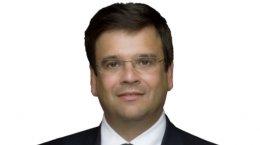India has warned that emerging market economies are beginning to “falterâ€, as China’s top economic policymakers described the global outlook as “extremely grim and complicatedâ€.
Pranab Mukherjee, India’s finance minister, said that India had to turn its attention urgently to “reviving growth as quickly as possible†after alarming signs that financial markets were under renewed stresses.
Similarly, China’s Communist party wrapped up its most important economic meeting of the year with an agreement to focus on maintaining fast economic growth amid the worsening outlook.
The annual three-day Central Economic Work Conference for top Communist officials sets policy for the coming year and this meeting clearly signalled that the leaders of the world’s second-largest economy are concerned about a slowdown in growth.
“Growth has replaced inflation as Beijing’s top policy concern,†said Qu Hongbin, co-head of Asian economics research at HSBC. “The economy is likely to slow further, calling for more aggressive easing measures.â€
The latest economic data out of China all show a slowdown in growth, driven primarily by slowing housing sales and construction and sliding exports, particularly to crisis-hit Europe.
“We expect property investment and exports to weaken further and adversely affect related industries in the coming months,†said Zhang Zhiwei, an economist at Nomura.
Amartya Sen, the Harvard University professor and Nobel laureate, launched a stinging rebuke of European governments for embracing austerity programmes to remedy their economic difficulties.
At the Indian finance ministry’s Delhi Economic Conclave, Mr Sen said a rush to comprehensive austerity was a “spiralling catastrophe†that was engulfing more countries across Europe and inviting the US to join the descent.
Mr Sen’s views reflect growing misgivings among Indian and, more widely, Asian economists and policymakers about the policy choices in the developed world in the wake of the 2008 global financial crisis. They fear that Europe, which has strong linkages to India, may suffer a decade or more of low growth.
Mr Mukherjee pinpointed “the heart of the problem†as the sovereign debt crisis, which has wracked the eurozone economy over the past year. But he assured that India’s difficulties with public debt and fiscal deficit were “nowhere near†those of Europe’s.
Some of the anxiety stems from a dramatic fall in the value of India’s currency. In recent days, the rupee has fallen to record lows of Rupees 53 to the dollar.
High growth rates in India and other emerging economies, are sapped by capacity constraints, volatile capital flows and a slowdown in external demand. They have also suffered inflationary pressures and widening capital account deficits.
Mr Mukherjee’s warning comes two days ahead of a crucial monetary policy review meeting by the Reserve Bank of India that some economists say will weigh cutting benchmark lending rates for the first time in two years.
It also follows recent data showing that India’s economic growth has slowed to below 7 per cent in the quarter to the end of September and that industrial production fell sharply in October.
The finance minister, who is one of the Congress party’s veteran policymakers, acknowledged that domestic policies had also created problems including deterring investments by Indian companies.
Kaushik Basu, the chief economic adviser at the finance ministry, said that India needed to “pull out of the industrial slowdown as soon as possible†to restore growth momentum.
More News From Financial Times





